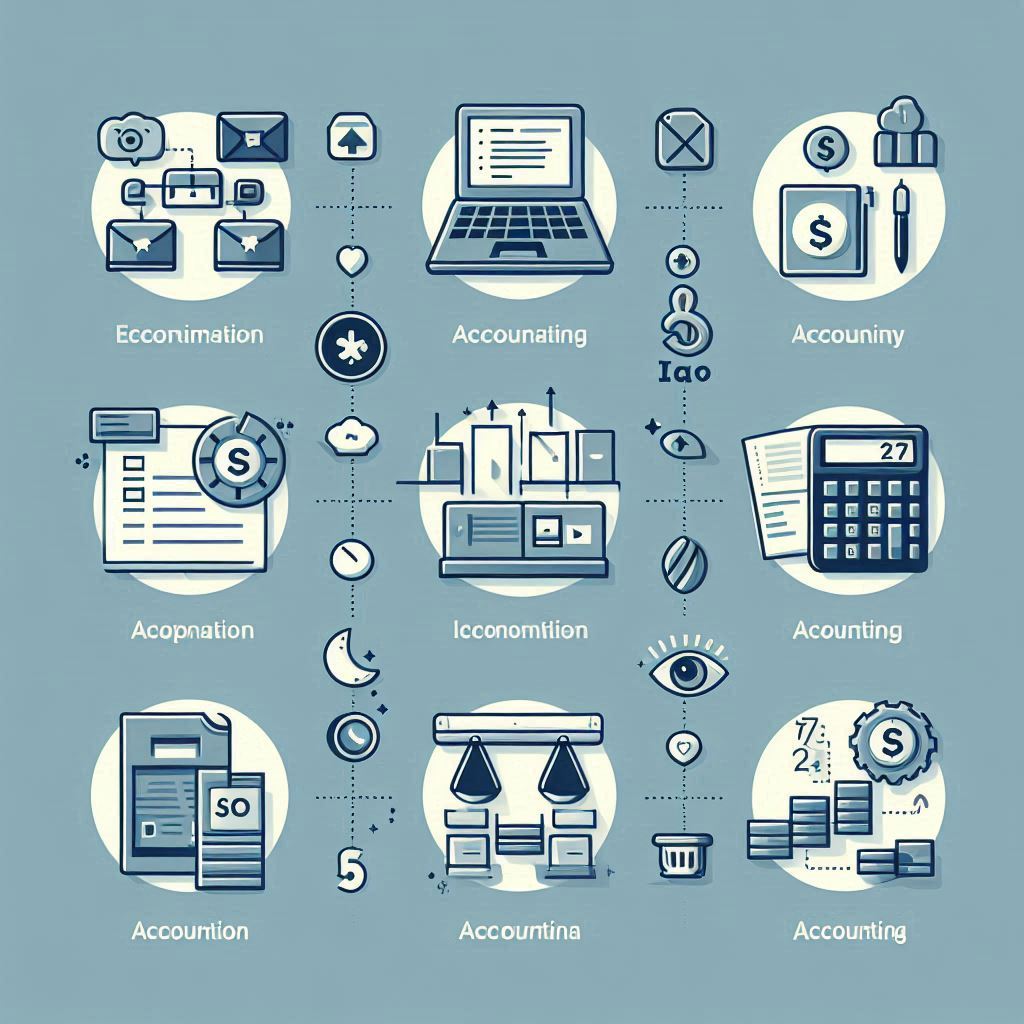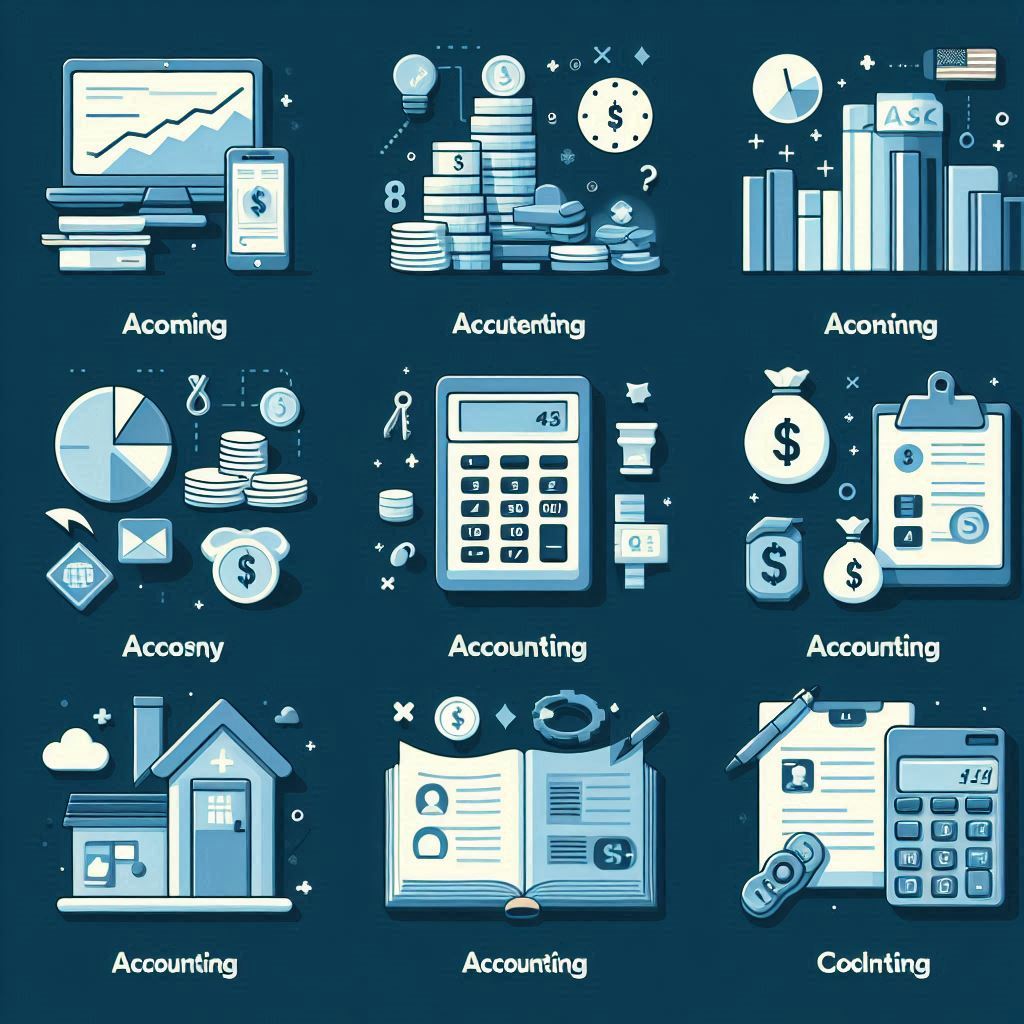Accounting Basics: A Simple Primer for Beginners
Anyone managing money must have a grasp of accounting basics. Whether you handle your own money or operate a company, knowing how transactions are recorded, tracked, and evaluated could be quite advantageous.
Using plain language, no jargon, and real-world examples, this manual explains important ideas including double-entry bookkeeping, Accounting 101, and other fundamental accounting principles.

What Basic Accounting Concepts Exist?
The ideas behind the monitoring, control, and reporting of financial activities are based on accounting principles.
Accounting fundamentally aids in answering these questions:
- What is the amount of incoming money?
- How much is leaving?
- What remains?
The main components are:
- What you possess is considered assets.
- Liabilities (what you owe)
- Equity (your ownership share)
- Income (income)
- Costs
These are listed in organized financial documents, such as:
- Balance sheets
- Income statements
- Statements of cash flow
Being familiar with these concepts helps one avoid mistakes, guarantees legislative compliance, and makes better choices. Anyone can master the basics of accounting with consistent effort and practice.

Essential Double Entry Bookkeeping
The foundation of contemporary accounting is double entry accounting.
Each financial transaction affects at least two accounts:
- One is charged
- The other is given credit
This maintains the balance of the accounting equation:
Equity plus liabilities equals assets.
For instance,
Using company funds, you purchase a laptop for $1,000.
- Debits: Equipment + $1,000
- Credit: $1,000 in cash
The advantages of this approach include:
- Integrated error detection
- Full transaction tracking
- Precise financial summaries
Financial statements are kept accurate by the use of double entry accounting. Without it, companies risk making misstatements, overlooking liabilities, or entering the same income items twice.
- Accounting 101 for Business Owners
- Every small business owner must have the fundamental accounting skills covered in Accounting 101.
- The reason it is important:
- Keeps track of gains and losses
- helps with budgeting and price setting.
- Keep up with tax regulations
- Improved financial choices
At the very least, you should be able to:
- Read a balance sheet
- Maintain records of accounts payable and receivable
- comprehend the distinction between accrual and cash accounting
- Employ simple accounting software
Although outsourcing might be beneficial, having a basic understanding of accounting 101 gives you control over your company’s finances.

Comparison Table: Single vs. Double Entry Bookkeeping
| Feature | Single Entry | Double Entry |
|---|---|---|
| Number of Accounts Affected | One | Two or more |
| Suitable For | Small-scale, personal | Businesses, professionals |
| Error Detection | Low | High |
| Balance Sheet Creation | Not possible | Possible |
| Regulatory Compliance | Rarely meets standards | Often required |
The Basic Accounting Principles Everyone Should Be Aware Of
There are a few fundamental accounting concepts that are common to both companies and people.
Among the most important are:
- The Equation of Accounting
Equity + Liabilities = Assets
- The Accrual Principle
When revenues and expenditures occur, record them rather than when money actually changes hands.
- The Consistency Principle
Use the same accounting procedures consistently throughout time.
- The Matching Principle
Pair income with associated costs
Knowing these things makes financial reports simpler to comprehend and more informative.
Regardless of whether you’re in charge of household finances or analyzing a business report, these fundamental accounting concepts are applicable everywhere.

A straightforward explanation of popular accounting terms
Even the basics of accounting can seem complicated due to the terminology. The following is an analysis:
- A valuable asset that is held (e. g. , money, inventory)
- Money you owe (e. g. , bills, loans)
- Equity: The proprietor’s claim to assets remaining after obligations.
- Revenue is the term used to describe money made through a company’s operations.
- The funds used to run firms are referred to as expenses.
Other helpful phrases:
- Journal – Where a transaction first enters the system
- Ledger – A collection of accounts used to categorize transactions
- Trial Balance – A report that compares total debits to credits to see if they are equal
Using terminology makes it easier to comprehend and apply the fundamentals of accounting in everyday life.
Quick Facts Table: Accounting 101 Essentials
| Fact | Description |
|---|---|
| Accounting Equation | Assets = Liabilities + Equity |
| Core Principles | Accrual, Matching, Consistency |
| Double Entry Bookkeeping Benefit | Tracks both sides of transactions |
| Minimum Records Needed for Business | Sales, expenses, assets, liabilities |
| Essential Reports | Balance sheet, income statement, cash flow |
The Importance of Knowing the Fundamentals of Accounting
Understanding the fundamentals of accounting results in greater financial management and assurance. The advantages are long-term, regardless of whether one is handling personal finances or company documents.

Benefits for business owners
- Be financially astute
- Provide investors with precise documentation
- Make sure to follow the tax regulations.
- Steer clear of consequences resulting from errors or omissions
Understanding the fundamentals of double-entry bookkeeping and accounting 101 provides entrepreneurs with a strong base.
Applications in Personal Finance
- Monitor spending patterns
- Establish and oversee budgets
- Assess financial soundness
- Get ready for taxes or loans
Fundamental accounting concepts are useful for everyone, not just for those in the industry. It’s a resource for everyone.

Final Considerations on the Fundamental Principles of Accounting
Accounting fundamentals help people and businesses stay financially organized and informed.
All concepts, from double entry accounting to Accounting 101, contribute to higher data accuracy and better decision-making.
To begin, all you need is patience, consistent practice, and real-world application—no formal education required.
FAQs
The simplest method to get an understanding of accounting basics is through what means?
Is it required to use double-entry bookkeeping?
Is it possible to utilize the program for accounting basics?
What distinguishes accounting 101 from more complex accounting?
If I have a basic understanding of accounting, do I still need an accountant?
📚 Want to master more legal and financial strategies for your business? Visit our [Main Blog Page] for all latest articles to explore our expert blogs packed with insights on accounting, audits, compliance, and allied matters. Empower your growth—one decision at a time. ✅📈
💬 Have questions about accounting or your own accounting experience? Drop a comment below! Whether you’re a startup founder or a seasoned CFO, your input can guide others on their compliance journey. Let’s build a smarter business community together.

